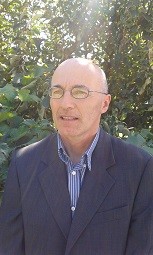
Giuseppe Ferrari was born in 1960 in Formigine (Modena, Italy). After the secondary school at the Liceo Classico Muratori (Modena ) he studied philosophy at the University of Bologna (1979-1985). He also studied theology at the Institute for Religious Sciences in Modena (1979-1982) and subsequently at the S.T.A.B (Studio Teologico Accademico Bolognese) of Bologna (1987-1989). During his academic study he spent six months at the University of Saarbrücken, West Germany (1984). In 1985 he obtained a master degree cum laude with a dissertation on Kant’s philosophy of religion. In 2007 he also obtained a Ph.D. degree in Philosophy at the University of Modena and Reggio Emilia with the dissertation Interrogare la natura. Uno studio su Arne Naess (“Questioning Nature: a Study on Arne Naess”). In 1993 he was appointed as a tenured high school teacher of history and philosophy. Since 1994 he has been teaching history and philosophy at the Liceo Formìggini in Sassuolo (Modena). He is at present deputy-director of the Center for Studies on Peace and Sustainability of the University of Modena and Reggio Emilia. His main fields of interest are religious studies, moral philosophy and environmental ethics. In collaboration with the Waldesian Faculty of Theology he edited the first Italian translation of a German book of Martin Luther ( M. Lutero, I concili e la chiesa (1539), Torino, Claudiana, 2002; with introduction and notes). Among his writings: John Dewey, een te gewoon geloof?, in "Filosofie", 17/2, 2006; Antonello la Vergata and Giuseppe Ferrari (eds.), Ecologia e sostenibilità. Aspetti filosofici di un dibattito, FrancoAngeli, Milano 2008; Etica e animali, in “Confronti”, giugno 2008; Green and Grey in Dutch Environmentalism: Debates and Philosophical Implications, in “Environmental Sciences”, vol. V 2008, pp. 191- 204; Temperance as an Environmental Virtue. An Interpretation of Thomas Aquinas in a «Green Personalism» Perspective, in "Archives Internationales d’Histoire des Sciences", vol. 64 2014, pp. 159-180.